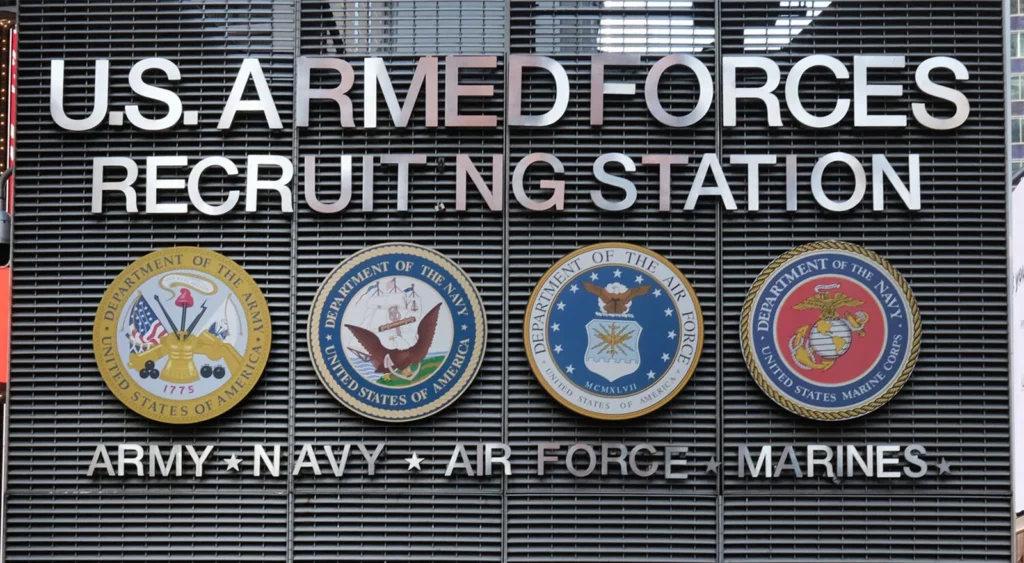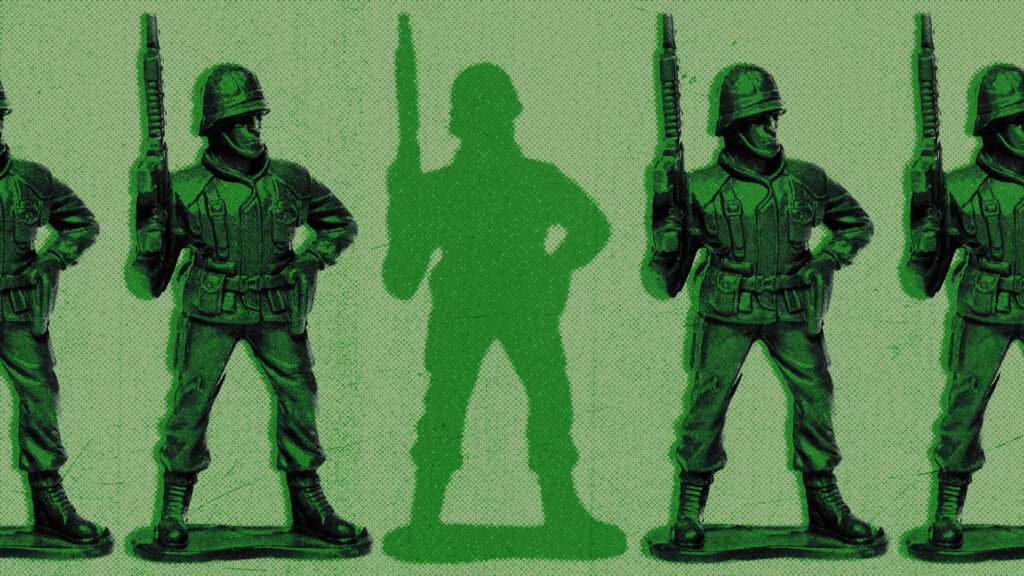Guest Post By Marine Author Matthew Weiss
What happens when we have a war and nobody shows up to fight? Military recruitment in the United States has plummeted to an all-time low. One of the few things politicians agree on is that our armed forces are in the midst of a manpower crisis. The entire concept of the “all-volunteer” force that has kept us safe for 50 years is in peril. Last year, the Army missed its recruitment goal by over 15,000 soldiers. With increasingly powerful threats in a modern world, this presents grave national security concerns. In addition, it reveals deeper truths about where we find ourselves as a society as well as America’s youth.
“Simply put, Generation Z, is not interested in joining the military.”
Zoomers, those born between 1997 and 2012 have grown up in extremely tumultuous times. While we’ve had access to technology our whole lives, we’ve witnessed the Great Financial Crisis, 9/11, two forever wars in the Middle East, school shootings, partisan politics, and the COVID-19 pandemic. Young people in my age group are described as more pragmatic as well as far more anxious than our older millennial cousins.
The Individualism of Gen Z
To address the military recruiting issue with Gen Z, I first looked at the basics of our generation. Who are we? What fundamentally makes us tick? I found that we’re struggling to find meaning in our everyday work, yet we want to differentiate ourselves through competition. We’re not the “everyone gets a trophy generation”, rather we are the “I want more likes than my peers, so I stand out” generation.”
Next, I looked at specific ways the military can change to be more in line with what Z expects for a modern workplace. Gone are the days of just doing things because that’s the way they’ve always been done. We innovate in everything and we expect our employers to do the same. Reskilling programs, performance-based pay, and remote work are all new models of task achievement that Z is beginning to demand. Unfortunately, the military has not been quick to catch on to this.
After that I analyzed how American society at large impacts Gen Z recruitment. These shifting societal truths are just like taxes in that they exist whether we like them or not. The DoD would be smart to adapt to them rather than complain or try to change them. It’s a fallacy and a cop out to claim that only 23% of American youth are qualified to serve. This oft-repeated line by defense leaders is an oversimplification and a misdirection. Instead, as an organization we must adapt to work with what we have. Drug use, crime, education level, and obesity are the main prohibitors to being admitted into the service. The DoD must recognize that Z is markedly different in each of these categories and rather than gripe about the state of American youth, work towards making the military a more appealing place for us.

We should promote a force that lets political policy issues be discussed without falling into political division. Rethinking views on marijuana use and bringing its treatment in line with alcohol use would also be a boon to recruiting. Finally, prioritizing mental health on par or more than physical health with Zoomers would also be effective in beginning to shift recruiting trends. I’m not calling for a total relaxing of standards, but I am calling for a reanalysis of what the right standards to uphold are.
“I found that even during my short time in uniform many of the previous amazing things present in military service still ring true today.”
Author Matthew Weiss: Listen to his interview on MSNBC’s Morning Joe here.
What stands above other professions is the military’s unique ability to be a true physical social network for a generation struggling with superficial and fake digital connections. The human bonds formed between brothers and sisters in the services are stronger than any other. That shared experience, adventure and communal purpose are the things that need emphasizing to better appeal to Generation Z. Perhaps it can end up being a model to fixing other societal issues as well.
While researching I came across a story about a young boy who served in the Continental Army at just fourteen years old. As our country struggled for its founding he rose up in the common defense and guarded meat and food for our soldiers. In a full-scale revolution in the face of a foreign invader, the first generation of Americans banded together to fight. While very different and hundreds of years separated from Generation Z, that founding generation leaves us much to aspire to. That young boy risked everything to protect his family, his future children, and the American ideals he believed in.
His experiences in the Revolutionary War clearly shaped his worldview and he went on to lead a successful private life. He developed alongside his fledgling nation and when the British returned in 1812, he once again stepped up to contribute. By then he was too old to fight and instead helped supply much-needed meat to our troops. When those soldiers received that food, they saw this man’s unique labeling on his barrels with the letters “U.S.” The legend and icon developed from there and this man, Samuel Wilson, was given the nickname that went down in history as “Uncle Sam.”

Uncle Sam saying “I want you” became the most iconic recruiting slogan of our nation’s history. Sadly, today’s young people are saying “We Don’t Want You, Uncle Sam”. While this may be a dismal reality, there’s a chance to turn the tide and change the course of the future. By encouraging open discussion of service in as many venues and conversations as possible, we can begin to reignite Z’s consideration for military service. We must all begin discussing national military service and help Gen Z see that Uncle Sam doesn’t just want them anymore…he needs them.
Buy Matthews book We Don’t Want You Uncle Sam: Examining the Military Recruiting Crisis with Generation Z and follow him on Instagram to find the solution.
